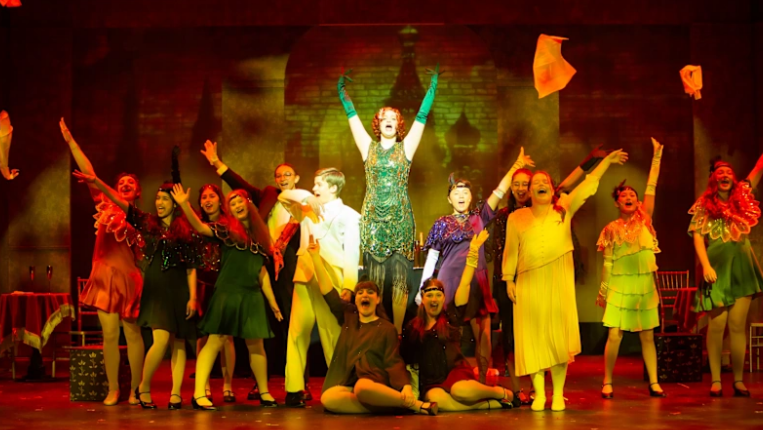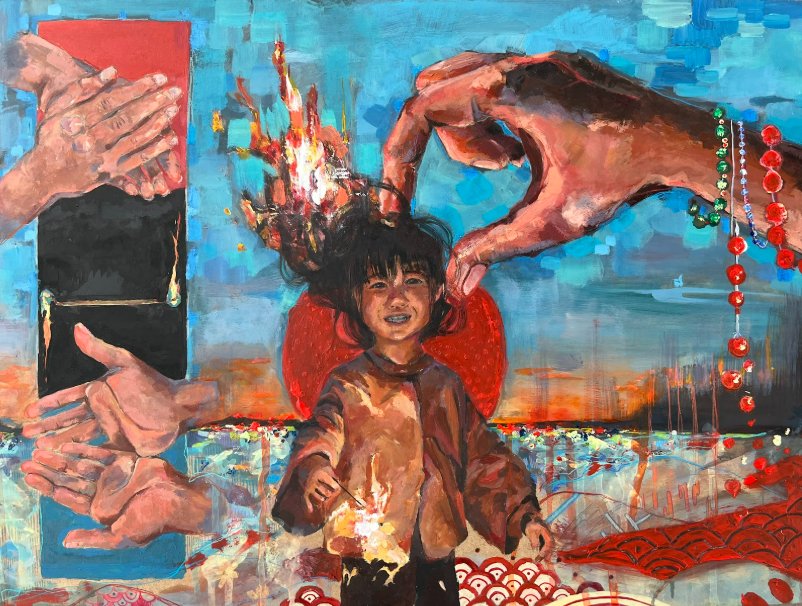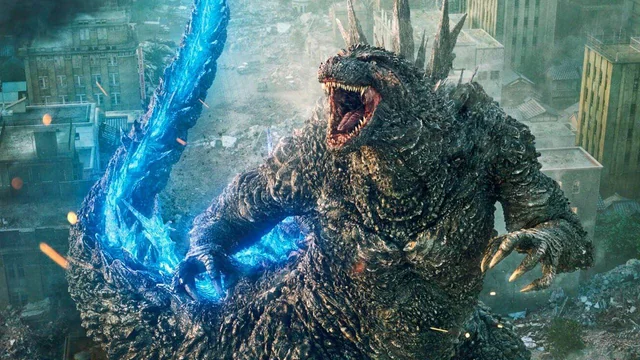Cultures Consume
 There is an old Japanese folklore called Momataro—“the peach boy”.
There is an old Japanese folklore called Momataro—“the peach boy”.
A large peach was carried across the river and a childless-elderly couple discovered the fruit, given its abnormal size, a miracle.
“Culture” is an identity that stems from the land in which it is walked upon, the way our mouths open with a conversation of familiarity, and foods that tell stories of our past. But if that truly is the essence of culture, I am by no means a part of it.
I am miles apart from my mother’s birthplace, my native tongue feels foreign and tainted with shame for neglecting a culture so dear to my family. The only connection to my past life is food.
This piece is a representation of the importance of food in regard to cultural expression and kinship—to consume is to feel, and I am full of remorse.
The peach in the center is grown from a tree, its leaves symbolic of the traditional flora of Japanese soil and derived from the folklore of Momataro.
The elderly couple brought the peach back home. Together, anticipating a fresh and ripened center, they cut the fruit—until they hear a cry. To their shock, a baby emerges from the peach—Momotaro.
I fear that my separation from my culture forced a false connection, a disheveled fantasy that tore the true meaning of culture.
My peach is ripe, gold, and glistening with succulent juice that stains on my fingers, yet where is my child? Instead of a baby born from the Japanese fruit, nurtured from the land’s native soil—I am left childless, a fruit with everything and a pit in my center.
I fear that I have idealized the concept of belonging through food—my only relationship with Japan.
The child in the bowl of ramen resembles my sentiment towards Japan. She embodies the childhood memories before I gave up reconnecting with my roots as I grew older. I am an observer of my own heritage. The hand of the larger girl is a representation of myself now, hesitating to interact with the waters that carry away my younger self. I fear disturbing the river’s flow, where childhood Japanese toys, native animals, and familiar lands reside—because I no longer feel entitled to them.
I watch as my Momotaro is carried across the river, her bowl trailing behind all the items that once anchored my childhood memories.
But my flaw is that I am too consumed by loss to focus on renewal. A river does not have an end, it will find some way to carve through the cracks in the soil and branch further into the land until met back to a body of water. The water is absorbed by the roots of a plant until it grows strong enough to stand on its own: a peach tree. Until I am ready to grasp the peach, the opportunity to reconnect is not limited. My culture is a part of me—the peach will grow again and wait patiently for its childless owner to cut it open, and consume.
My culture is my consumption. I envelop my heritage, I feed off the air, land, and sea—the past, the present, the future. And now, I am full.





